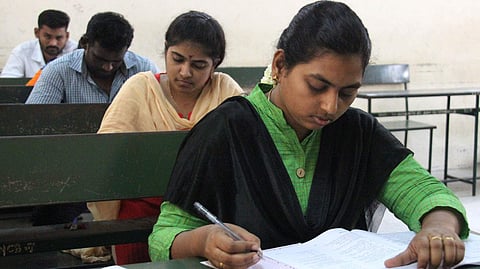

MADURAI: National Platform for the Rights of the Disabled (NPRD) General Secretary Muralidharan on Wednesday appealed to the Secretary of the Department of Empowerment of Persons With Disabilities (DEPwD) to make efforts to follow the 2022 guidelines issued by the department while conducting examinations, including the ones conducted by the Union Public Service Commission (UPSC).
In a letter to the DEPwD secretary, UPSC chairperson and chief commissioner for persons with disabilities (PwDs), Muralidharan said that UPSC aspirants and PwDs were allegedly denied permission to use assistive devices such as prosthetics, orthotics and hearing aids, while appearing for the prelims examination held in Madurai on Sunday.
“In spite of the guidelines issued by the DEPwD (F. No. 29-6/2019-DD-III dated August 10, 2022), which expressly mandates that the exam centres should be accessible for persons with disabilities, they were denied permission. The DEPwD, which is the nodal department, should revisit the August 2022 guidelines which explicitly state that the use of mobility and other aids essential for PwDs be permitted at exam centres,” Muralidharan said.
He added that the department must take to task both the UPSC, for failing to provide a level playing field to PwDs, and the authorities concerned at the exam centre, for violation of basic human rights of the candidates and the indignity and discrimination that they were subjected to during the exam.
“According to Section 92 of the RPD Act, whoever intentionally insults a PwD in any place within public view, assaults, controls a PwD voluntarily or knowingly denies food or fluids to him or her, being in a position to dominate the will of a child or woman with disability would be imprisoned up to five years and fined,” he pointed out.